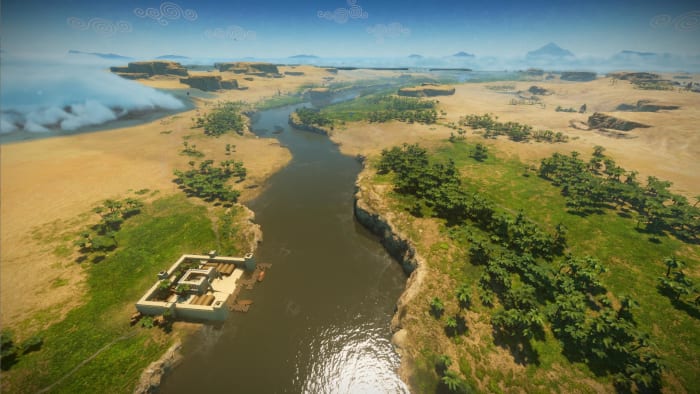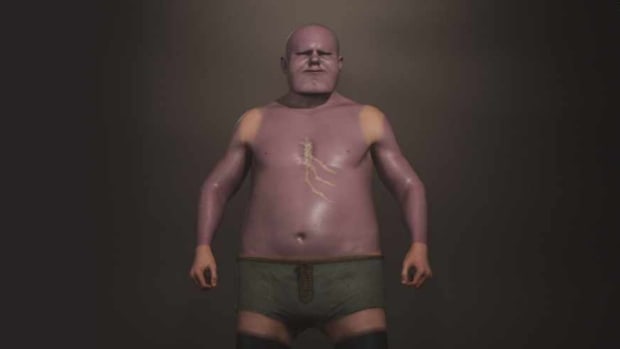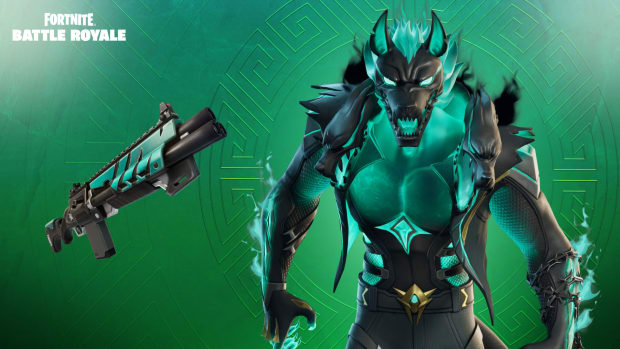
Total War: Pharaoh interview – Todor Nikolov about making the most unique Total War campaign yet
Diving into the mystery of the Bronze Age Collapse was a change of scenery for the team at Creative Assembly Sofia, which is putting the finishing touches on Total War: Pharaoh at the moment. Its previous title was set in the mythical world of the Trojan War – and though not exactly a reliable historical account, the Homeric cycle of epics did have something that the developers dearly missed when working Pharaoh, game director Todor Nikolov tells me – they provided lots of detail on the characters. “We don’t have the luxury of literary sources. We had to rely more on history and archaeology, which is the main driving force behind the decision to make the game a purely historical one,” he explains.
His team looked into the scientific explanations of the Bronze Age Collapse (between 1200 and 1150 BCE) and tried to work all the possible causes into the game on a mechanical level, but in a visual way as well – as the sun of civilization in the Eastern Mediterranean sets, the world gets darker and loses color. A feeling of doom and apocalypse sets in, giving players a taste of what it must have been like to live through this time. Some of the characters are basically only known by name today, nothing else survived. Nikolov says: “It was a fascinating journey to try and flesh out believable characters and their interactions from relatively little information.”




A fan favorite feature ever since the game was announced are the Outposts found in every province in Total War: Pharaoh. Obvious inspiration came from older titles like Rome and Empire. “We wanted to explore the idea of giving the player the ability to construct tangible objects on the map,” Nikolov tells me. “As you mentioned, this is present in other Total War titles, it’s nothing groundbreaking. However, the way we did it, it gradually expanded into another layer of faction development.”
Some Outposts can be built once per province, others multiple times to stack their effects. Aside from their passive bonuses, they actively provide visiting armies with some effects and restore a percentage of their movement points, effectively adding to the distance they can travel per turn: “If you’ve laid out these Outposts efficiently, your armies might be able to cover a lot of ground in a single turn.”
Investing those resources into this infrastructure pays off dividends once you have to hunt down Sea Peoples on your territory. However, Nikolov mentions the other side of that particular coin: “If an enemy manages to cut this infrastructural chain, you will have problems if you are relying on it too much.” This is likely one of the causes of the Bronze Age Collapse in real history, so the game manages to succinctly showcase this development through its mechanics.
I describe how I used chains of trading outposts to create highways for my armies, along which they can quickly march with reduced upkeep costs, and Nikolov brings up an interesting point his team noticed during playtests – namely a big difference between the Outposts players prefer.
“There are players who predominantly prefer relying on forts,” he says. “Well, I myself do not find them that efficient and I prefer a combination of waystations and trading outposts, something similar to what you’re doing.” It speaks to the amount of options present in Pharaoh, that even a small sample size of players will yield different results in this department.
Provincial commandments follow a carrot and stick approach in Pharaoh, they are much less a 'fire and forget' kind of deal than in other Total War titles – all but one come with serious debuffs and buffs.
“The idea is to make the choice more impactful and to have the commandments really related to your current situation. In some cases you would want to, for example, recruit better units or cheaper ones, but this comes at the expense of some resources or whatever is the case,” he explains.

Total War: Pharaoh's map has some of the playful visuals of Troy, like the drawn clouds on the horizon.
Creative Assembly
Total War: Pharaoh sports the beefiest campaign experience in the series’ history. Are there any concerns about there being too many systems for players to handle? “This is a frequent concern of mine,” Nikolov says. “I mean, I’m the game director, I’m concerned about everything. We have tried to reduce the overload of information via the tutorial campaign, where you play in more of a railway fashion to learn about the various systems.”
“For the campaign itself,” Nikolov continues,”we’ve taken the additional precaution of gating the different features for the first twelve turns. It’s a very delicate and fine balance to give players the information they need to know to make their choices and access to all the systems at the right time. I’m worried about overwhelming the players with the information. I’m also worried about veteran Total War players that are very experienced and instinctively know how things work, who are then denied the option of diving in straight away. Right now we’re trying to find the balance between these two.”
The way it works right now is that you’ll be introduced to things like the deities and court politics after the first and second interval of six turns – the entire game is structured based on this cycle, with each turn representing two months of time. Every sixth turn is Shemsu Hor – the Pharaoh’s annual journey up the Nile. This brings some special effects with it, changing what some abilities do and resolving court schemes, but at the beginning it’ll simply unlock new features for you. It’s a good pace, since you’ll be busy fighting your first battle and taking over your first settlement at the beginning anyways. “As we developed the campaign,” Nikolov says, “it made a lot of sense to introduce a special moment where a year ends and then different events take place in this time. It gives a lot of structure to the campaign.”

Pharaoh features the most sub-systems of any Total War campaign yet, but that's definitely a strength.
Creative Assembly
Community opinion on Pharaoh’s many customization options has been very positive overall, but I nevertheless ask Nikolov which setting he’d recommend a skeptical player to try out to change their opinion. “In my opinion, the most impactful one would be the random starting positions, as it created wildly different situations from one another,” he responds. “I’m very curious about how players will accept it in the current implementation.”
He adds: “Additionally, I very much like the options that can remove things like the Sea People’s invasions or reduce them to a more manageable level for people, who find them more a nuisance than a fun aspect of the campaign. The bottom line of the customization options is that we want players to have fun in the way they see fit.”
Aside from the customization settings, the developers added an “undo turn” button for exactly this reason as well: “What we’re saying is, ‘here, a save scum button, if you want to use it like that it’s totally fine.’ Anything that the player feels is necessary for them to have fun is necessary to have in the game.”
CA Sofia managed to please the crowd with a few other changes recently, adding unit banners to the battlefield graphics and giving players the option to play with unit cards drawn in an Egyptian art style. “I’m very glad that we managed to implement them,” Nikolov says. “But the sad reality is that we can’t implement everything. We need to be mindful of our resources and our time and prioritize accordingly. I’m quite proud of what we managed to achieve and I hope players enjoy it. It’s worth noting that people over here from the dev team were really, really excited to be working on something that the players would like to see in the game.”
Total War: Pharaoh will be released on October 11, 2023, for PC. For more hands-on info on the title, check out our Total War: Pharaoh campaign preview.




